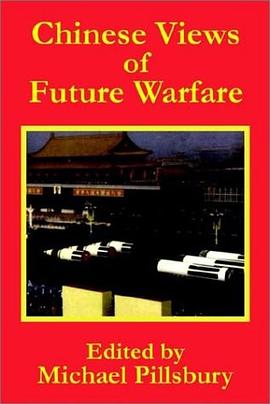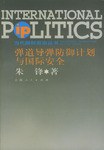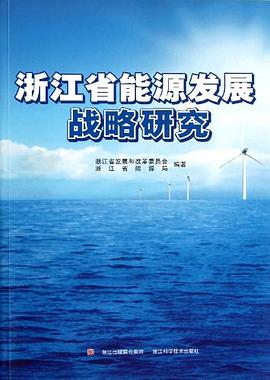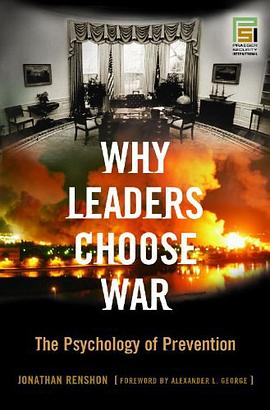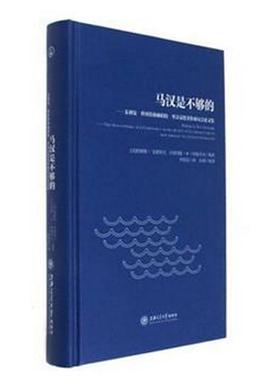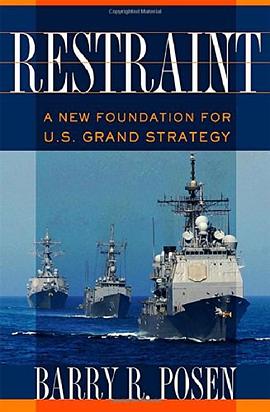

具体描述
The United States, Barry R. Posen argues in Restraint, has grown incapable of moderating its ambitions in international politics. Since the collapse of Soviet power, it has pursued a grand strategy that he calls "liberal hegemony," one that Posen sees as unnecessary, counterproductive, costly, and wasteful. Written for policymakers and observers alike, Restraint explains precisely why this grand strategy works poorly and then provides a carefully designed alternative grand strategy and an associated military strategy and force structure. In contrast to the failures and unexpected problems that have stemmed from America's consistent overreaching, Posen makes an urgent argument for restraint in the future use of U.S. military strength.
After setting out the political implications of restraint as a guiding principle, Posen sketches the appropriate military forces and posture that would support such a strategy. He works with a deliberately constrained notion of grand strategy and, even more important, of national security (which he defines as including sovereignty, territorial integrity, power position, and safety). His alternative for military strategy, which Posen calls "command of the commons," focuses on protecting U.S. global access through naval, air, and space power, while freeing the United States from most of the relationships that require the permanent stationing of U.S. forces overseas.
作者简介
Barry R. Posen is Ford International Professor of Political Science and director of the Security Studies Program at MIT. He is the author of The Sources of Military Doctrine: France, Britain, and Germany between the World Wars (winner of the Furniss Award and the Woodrow Wilson Foundation Award), Inadvertent Escalation: Conventional War and Nuclear Risks, and Restraint: A New Foundation for U.S. Grand Strategy, all from Cornell.
目录信息
读后感
评分
评分
评分
评分
用户评价
the case for restraint做得很好;但后面的force structure planning似乎论证没那么严密。不谈军事技术和作战学说的发展革新,一方面谈中国能力趋势,另一方面在规划时却以海湾战争或伊拉克自由行动为参考案例,显得有点暗自不择手段、为裁军而裁军的意思。
评分the case for restraint做得很好;但后面的force structure planning似乎论证没那么严密。不谈军事技术和作战学说的发展革新,一方面谈中国能力趋势,另一方面在规划时却以海湾战争或伊拉克自由行动为参考案例,显得有点暗自不择手段、为裁军而裁军的意思。
评分the case for restraint做得很好;但后面的force structure planning似乎论证没那么严密。不谈军事技术和作战学说的发展革新,一方面谈中国能力趋势,另一方面在规划时却以海湾战争或伊拉克自由行动为参考案例,显得有点暗自不择手段、为裁军而裁军的意思。
评分the case for restraint做得很好;但后面的force structure planning似乎论证没那么严密。不谈军事技术和作战学说的发展革新,一方面谈中国能力趋势,另一方面在规划时却以海湾战争或伊拉克自由行动为参考案例,显得有点暗自不择手段、为裁军而裁军的意思。
评分the case for restraint做得很好;但后面的force structure planning似乎论证没那么严密。不谈军事技术和作战学说的发展革新,一方面谈中国能力趋势,另一方面在规划时却以海湾战争或伊拉克自由行动为参考案例,显得有点暗自不择手段、为裁军而裁军的意思。
相关图书
本站所有内容均为互联网搜索引擎提供的公开搜索信息,本站不存储任何数据与内容,任何内容与数据均与本站无关,如有需要请联系相关搜索引擎包括但不限于百度,google,bing,sogou 等
© 2025 book.quotespace.org All Rights Reserved. 小美书屋 版权所有

